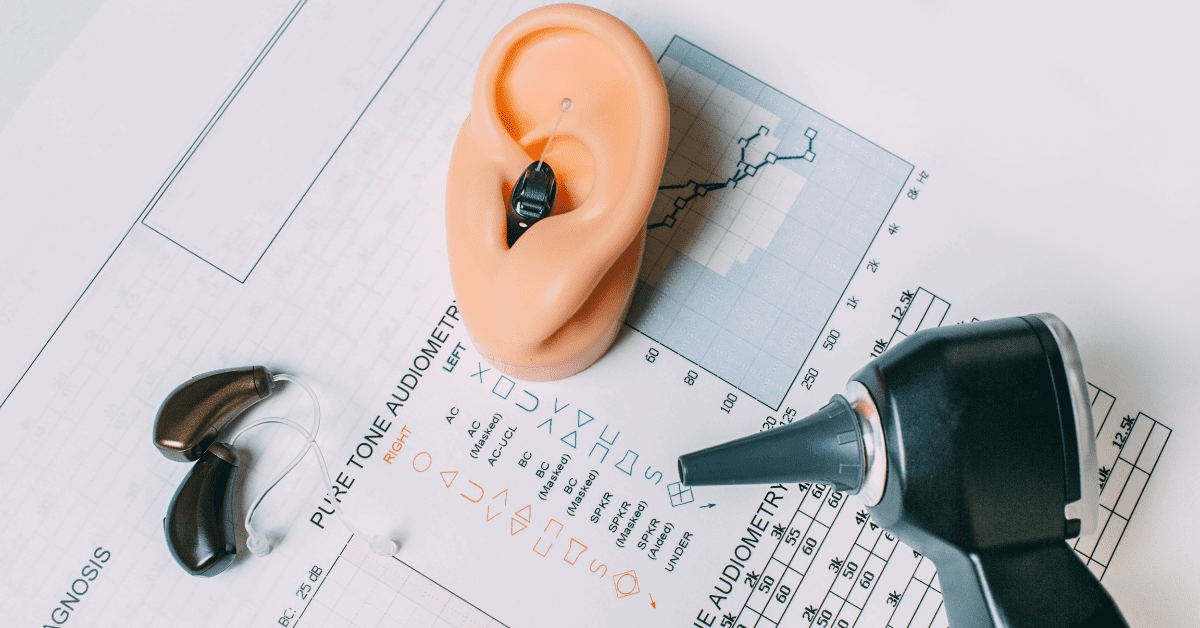Hearing loss touches the lives of one in three people between the ages of 65 and 74, bringing challenges that reach well beyond simply missing sounds. The connection between hearing and mental health runs deep—older adults with hearing loss face a 47% higher likelihood of experiencing depression symptoms. Many seniors find their world shrinking as hearing difficulties create walls between them and their loved ones.
The Emotional Impact of Hearing Loss in Seniors
The initial frustration and confusion
Hearing loss creates daily moments of embarrassment and self-doubt for many older adults. Some feel deeply frustrated when they misunderstand conversations or make perceptual errors. Others hide their hearing difficulties, refusing to acknowledge problems that create mounting stress. This struggle typically shows itself through:
- Embarrassment when asking family members to repeat themselves
- Growing frustration during routine interactions
- Feeling self-conscious about appearing “slow” or unresponsive
- Worry about missing vital information
How hearing loss affects daily conversations
Every day conversations transform into exhausting challenges for seniors with hearing loss. Simple exchanges now demand intense focus, creating genuine mental fatigue. This often leads older adults to withdraw from social settings altogether.
The ripple effects touch every aspect of communication. Many seniors stop participating in community gatherings that they once valued. Family bonds suffer as seniors feel isolated despite being physically present with loved ones.
The relationship between hearing loss and depression
Research paints a clear picture connecting hearing loss with psychological distress. Older adults with hearing loss show 47% greater odds of experiencing depression symptoms. Those with mild hearing loss face a 49% higher risk of moderate psychological distress, while moderate or worse hearing loss raises that risk by 112%.
Warning Signs of Mental Health Challenges
Changes in social behavior
Your loved one might show signs such as:
- Growing frustrated during everyday conversations
- Giving responses that don’t match the question asked
- Looking mentally drained after spending time with others
- Showing irritation when asked to repeat what they’ve said
Signs of withdrawal or isolation
The most troubling warning sign appears when seniors begin withdrawing from social life altogether. Research clearly links untreated hearing loss to growing isolation, as affected seniors develop increasingly smaller social circles over time. Studies show older adults with hearing difficulties maintain significantly smaller social networks compared to those with normal hearing.
Sadly, many seniors with hearing loss gain a reputation for being unfriendly when neighbors wrongly believe they’re being ignored as greetings go unheard. These misunderstandings only deepen their sense of isolation.
Recognizing these behavioral shifts early allows for timely support before isolation takes a deeper toll.
The Journey to Acceptance and Adaptation
Building new communication habits
- Face-to-face interaction becomes essential as seeing lip movements and facial expressions improves understanding.
- Speaking clearly at a normal pace without shouting helps words remain distinct and recognizable.
- Minimizing background noise by turning off TVs or finding quieter spaces makes hearing possible again.
- Using visual cues through gestures and expressions adds another layer of meaning beyond words alone.
Finding joy in different sensory experiences
- Artistic engagement through painting, crafts or drawing stimulates creativity and reduces stress. These pursuits strengthen mental skills without demanding good hearing.
- Physical activities like gardening and swimming offer gentle exercise with significant benefits.
- Quiet activities such as reading and meditation provide surprising benefits, such as reducing anxiety, improving sleep patterns, and even lowering blood pressure.
Creating a Supportive Environment for Seniors with Hearing Loss
Communication techniques for family members
Good communication begins with respectful attention-getting. Rather than calling out from another room, gently touch your loved one’s shoulder or move where they can see you before speaking. Face them directly, maintaining natural eye contact so they can follow your expressions and lip movements. Speak clearly at a normal pace—shouting actually distorts sounds and makes understanding harder.
Technology solutions beyond hearing aids
Helpful technologies extend far beyond traditional hearing aids. Assistive listening devices (ALDs) make sounds clearer even in challenging environments like restaurants. Captioned telephones show the caller’s words as text, bringing phone conversations back into reach. TV listening systems send sound directly to headsets or hearing aids without disturbing others watching the same program.
Genuine Understanding
Family support becomes the cornerstone of successful adaptation. Your willingness to adjust your communication style helps seniors feel valued rather than burdened. Whether rearranging furniture or exploring new technologies, these acts of care preserve independence while showing genuine understanding.
Active adult communities in Wisconsin are a great option. Contact us at (844) 658-4475 to schedule a tour of Heritage Senior Living and discover how we can help your loved one thrive despite hearing challenges.
FAQs
Q1. How can older adults cope with the impact of hearing loss? Coping strategies include using assistive hearing devices, practicing effective communication techniques, seeking counseling and support, utilizing technology and apps and engaging in self-care activities. It’s important to be patient with yourself and maintain social connections despite the challenges.
Q2. What are some signs of mental health challenges in seniors with hearing loss? Key signs include changes in social behavior, such as avoiding noisy environments or large gatherings, responding inappropriately to questions, showing frustration during conversations and progressively withdrawing from social activities. Increased isolation and smaller social networks are also common indicators.
Q3. How can family members improve communication with seniors experiencing hearing loss? Family members can help by facing the senior when speaking, maintaining eye contact, speaking clearly at a moderate pace without shouting, minimizing background noise and using visual cues. It’s also helpful to rephrase statements rather than simply repeating them when misunderstandings occur.







